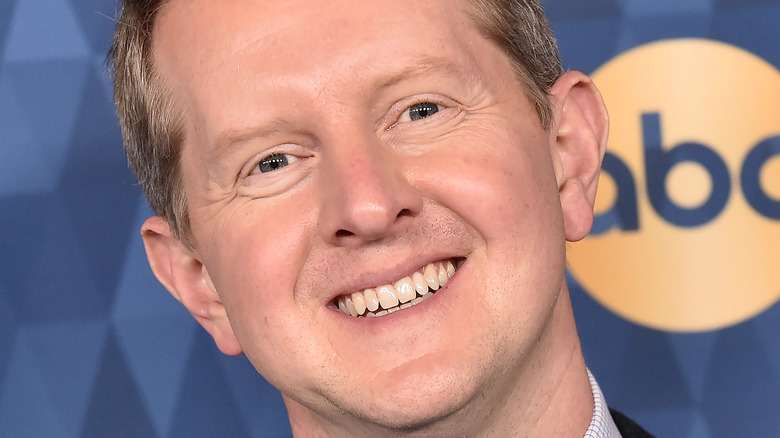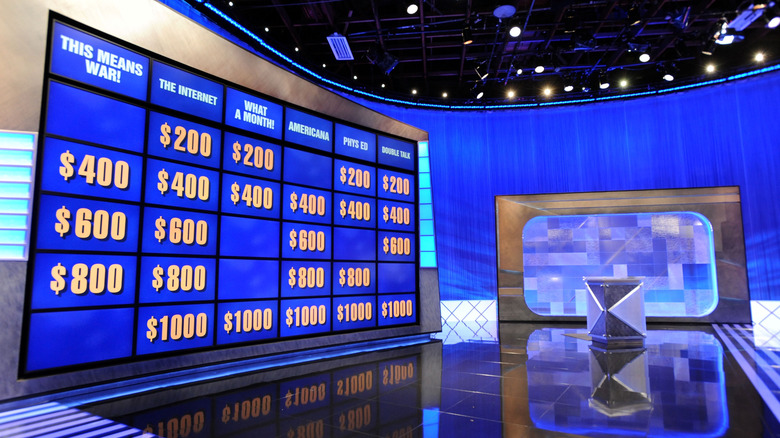Former Jeopardy! Contestants Spill The Beans On Their Winning Hacks
The latest "Jeopardy!" buzz has been following contestant Amy Schneider through a winning streak that has secured her place as one of the top-earning participants of all time, according to TMZ. Schneider's winnings have officially amassed over $1 million. As Ken Jennings, fellow "Jeopardy!" millionaire and the show's 2022 season co-host, informed Schneider after reaching the milestone, she is "the fifth millionaire in 'Jeopardy!' history and only the fourth to do it in regular-season play," (via YouTube).
Impressive runs on the classic game show are not only about having an absurd, genius-level of intelligence. As many former contestants have shared, there is a lot of preparation, technique, attention to patterns, and a familiarity with the show itself that goes into taking the opportunity as far as possible, according to the New York Post. If you examine something close enough, especially a format that has been running for decades, you will begin to notice patterns. Several contestants are giving up their secrets and routines, so if you are finally ready to take your love of "Jeopardy!" the extra mile, here is the dedication you will need.
How "Jeopardy!" contestants do their homework
Patterns are crucial for "Jeopardy!" hopefuls, former contestant Austin Rogers explained to the New York Post. Rogers had a successful 12-game streak, winning $411,000. The New York City bartender's humor and positivity also gained him internet fans, per CNBC. Per the New York Post, Rogers dedicated 11 hours a day to rigorous studying for two weeks. Apparently, one of his most valuable resources was J! Archive. The site is defined as a "fan-created archive" featuring "428,842 clues and counting!" Rogers shared with the Post, "I would open random games and play them in my head. I noticed what comes up the most."
Former "Jeopardy!" contestant James Holzhauer, who won a whopping $2.4 million during his run, recommended using children's books in an interview with The New York Times. This method assisted contestant Jeffrey Williams on the show. "Holzhauer correctly pointed out that if you understand how the clues are written, a children's level understanding of the topics provides big enough signposts to get you into the ballpark of an answer."
Silly as it may sound, both Rogers and Williams also practiced hitting the buzzer. Rogers utilized a thumb exerciser, as it had a similar feel to the real thing. Williams' tip is to have a relaxed arm for maximum speed and to wait for the last syllable of the clue. If you happen to have a few educational children's books, a strong thumb, and time to fill in the gaps of your knowledge, you may be setting yourself up for a future television moment!


